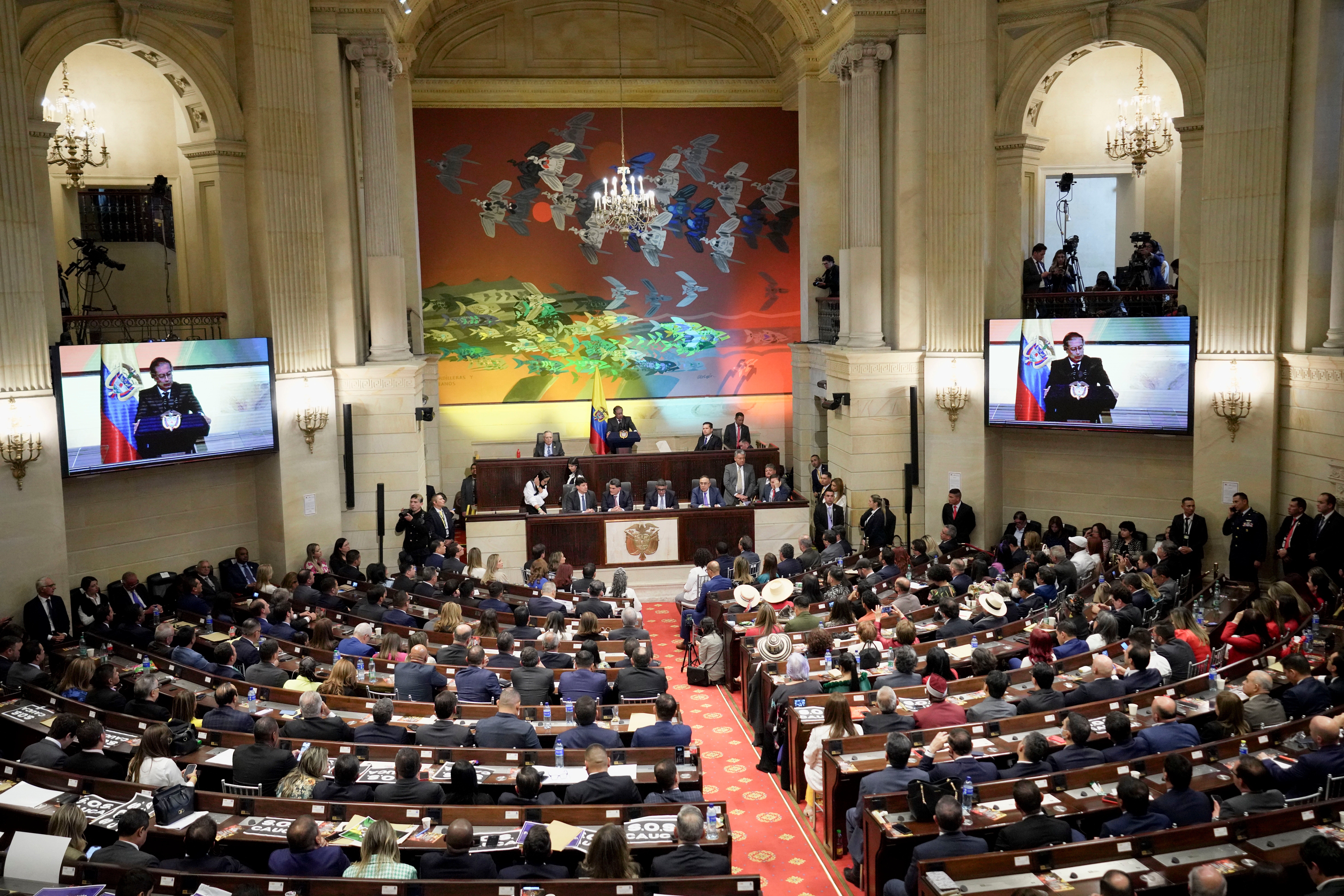Colombia's president signs bill to ban bullfighting in the South American country
Colombia's president has signed a bill that bans bullfights in the South American country, further reducing the short list of nations around the world where the centuries-old tradition is still legal

Colombian President Gustavo Petro on Monday signed a bill that bans bullfights in the South American country, further reducing the short list of nations around the world where the centuries-old tradition is still legal.
Petro signed it in front of hundreds of animal rights activists during a ceremony held in Bogota’s bullring, after a supporter in a bull costume handed him a copy of the legislation.
“We cannot tell the world that killing living and sentient beings for entertainment is culture,” Petro said in a speech after signing the bill. “That kind of culture of killing an animal for entertainment would also lead us to killing human beings for entertainment, because we are also animals.”
The bullfighting ban was approved by Colombia’s Congress in May, after months of heated debates.
The bill calls on the government to completely ban bullfights across the nation by 2027, and orders the government to turn more than a dozen bullrings into cultural and sporting venues.
Bullfights have been held in Colombia since Spanish colonial times. But the popularity of the sport has declined in recent years as views on animal rights changed.
Bullfighting aficionados in Colombia argue the ban violates the rights of minorities to express their cultural heritage. They add that it also jeopardizes the livelihoods of those who make a living from bullfighting, such as matadors, event promoters, merchants and ranchers who specialize in breeding the aggressive and muscular animals used in bullfights.
On Monday, pro bullfighting groups launched a social media campaign in support of the tradition, saying the bill was approved without the support of Colombia’s labor ministry. Supporters have also said they will challenge the law in Colombia’s Constitutional Court.
Only seven countries now allow bullfights: Spain, France, Portugal, Mexico, Venezuela, Ecuador and Peru. However, some municipal and regional governments within those countries have imposed local bans.
Petro has been an opponent of bullfights since he was Bogota’s mayor. In 2012, he repealed a city contract that allowed bullfighting event promoters to use the city’s bullfighting arena.
Animal rights activists in Colombia had been lobbying Congress to ban bullfights for two decades, often losing key votes by narrow margins. But in May, they finally pushed the ban through with the help of legislators from Petro’s Historical Pact Party and with votes from some members of centrist and conservative parties.
“For many years we have staged protests, we have lobbied congress and we have tried to win the hearts of Colombia’s people,” said Chucho Merchan, a vegan activist and musician who spoke at Monday’s event. “So that in this country that has so much violence, we can give an example that it is possible to evolve towards a world with more justice, that is free of cruelty.”
Bookmark popover
Removed from bookmarks